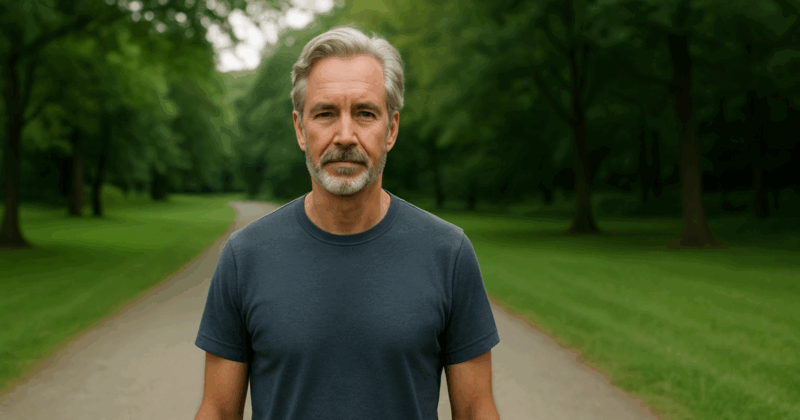I’ve noticed something sad as I’ve gotten older. A lot of people seem to lose their spark.
It’s not that life suddenly turns bleak the moment you hit middle age. But somewhere between careers, family obligations, and the natural challenges of aging, many people start to look tired. Less playful. More pessimistic.
The good news? People who cultivate the right habits can actually become happier and more fulfilled as they get older—not less.
But just as important as what we do… is what we stop doing.
If you want to keep your spark alive, here are 7 habits worth saying goodbye to.
1. Clinging to toxic relationships
We’ve all heard the cliché that “you are the average of the five people you spend the most time with.” Turns out, it’s true.
A Harvard study showed that people with satisfying relationships are not only happier but also physically healthier.
On the flip side, loneliness and toxic relationships take a heavy toll.
The lesson here? As you age, it becomes even more important to be selective about who you let into your life.
You don’t have unlimited energy. Protect it by spending time with people who uplift you, not those who drain you.
2. Wasting energy on regret
Do you ever replay old mistakes in your head?
The job you didn’t take. The person you didn’t ask out. The time you let fear make the decision for you.
The older we get, the easier it is to dwell on the past. But regret is like quicksand—it pulls you under the more you fight it.
Buddhist philosophy teaches impermanence: everything, including our mistakes, is temporary. The past only has power if we keep dragging it into the present.
Instead of ruminating, try asking: What can I learn from this? How can I live differently now?
The past becomes a teacher, not a prison.
3. Neglecting friendships
When we’re younger, friendships often come naturally. School, sports, university—they throw us into social circles without much effort.
But as life goes on, friendships require more intentionality.
And here’s the kicker: experts say that in older adults, friendships are an even stronger predictor of health and happiness than family ties. Yet many people neglect them.
It’s easy to say, “I’m too busy.” But loneliness creeps in slowly. Before you know it, years pass without real connection.
If you want to stay optimistic as you age, prioritize friendships like you would exercise or eating well. Because they’re just as vital.
4. Comparing yourself to others
When you’re younger, comparison can feel like a motivator. Who’s getting the better grades, the better job, the nicer car?
But as you age, it becomes a silent killer of joy.
The problem is that comparison never ends. There will always be someone richer, fitter, more successful.
Flip the script: instead of measuring yourself against others, measure yourself against who you were yesterday. Are you more compassionate? More resilient? More at peace?
That’s the only comparison worth making.
5. Avoiding change
One of the most common traps people fall into as they age is resisting change. Whether it’s clinging to outdated beliefs, refusing to learn new technology, or staying in a comfort zone, fear of change narrows life instead of expanding it.
But here’s the truth: change is the only constant. And those who adapt stay not only more optimistic, but more alive.
Think about the older person who takes up painting at 60, starts running marathons at 65, or learns a new language at 70. They thrive because they embrace novelty instead of fearing it.
Change doesn’t have to be dramatic. Even small steps—like trying a new hobby, traveling to a new place, or simply reading books outside your comfort zone—keep the mind flexible and the heart open.
6. Ignoring your health
This is a huge one.
Many people neglect their health until it’s too late. They assume aches and fatigue are just “part of getting older.”
But exercise, diet, sleep, and stress management are crucial for wellbeing at any age. And they don’t just keep you alive longer. They make those years worth living.
Treat your body as a foundation for your happiness, not an afterthought.
7. Holding on to cynicism
Somewhere along the line, many people stop being curious and hopeful. Instead, they get cynical. They expect the worst from others, from society, from life itself.
But cynicism is just disappointment hardened into a habit. And it steals joy.
Optimism isn’t about ignoring problems—it’s about believing that growth and goodness are still possible, even when times are tough.
The people who stay young at heart are those who keep their curiosity alive, no matter how many candles are on their birthday cake.
Final words
Getting older doesn’t mean losing your spark. It can mean the opposite—if you’re willing to let go of the habits that drag you down.
Say goodbye to toxic relationships, regret, neglected friendships, constant comparison, resistance to change, poor health habits, and cynicism.
Say hello instead to connection, learning, health, curiosity, and growth.
Happiness in later life isn’t an accident—it’s a practice. And the earlier you start, the brighter your future will be.
- People who still look young in their 60s and beyond usually adopt these 8 daily habits - September 22, 2025
- Psychology says people who are naturally kind but have no close friends often display these 7 traits - September 19, 2025
- People who stay joyful in their 70s almost always share these 7 traits - September 18, 2025
